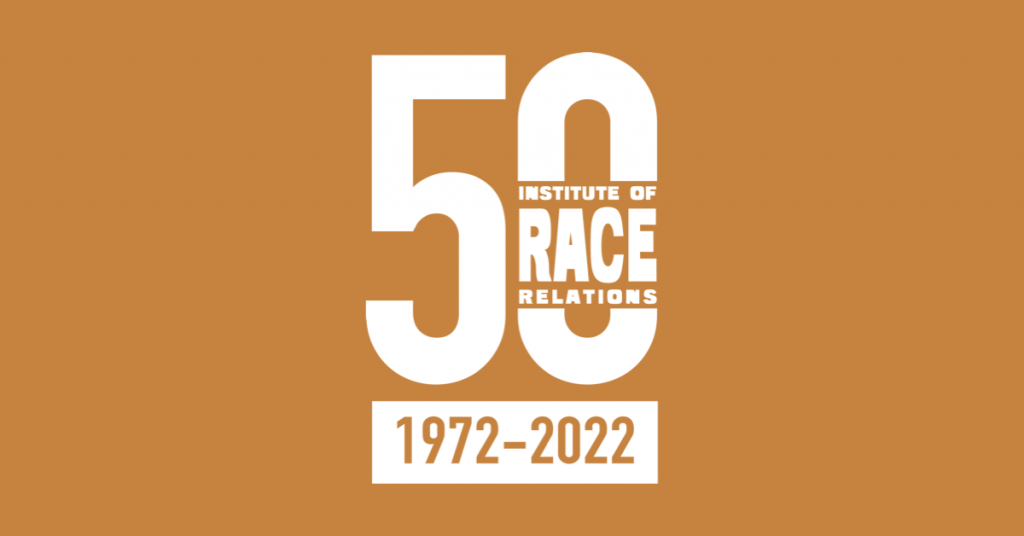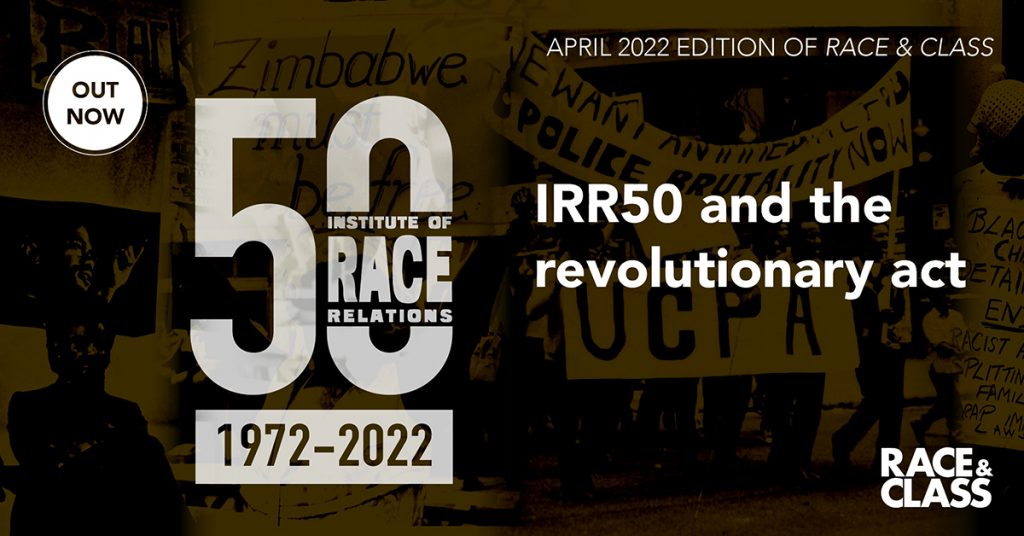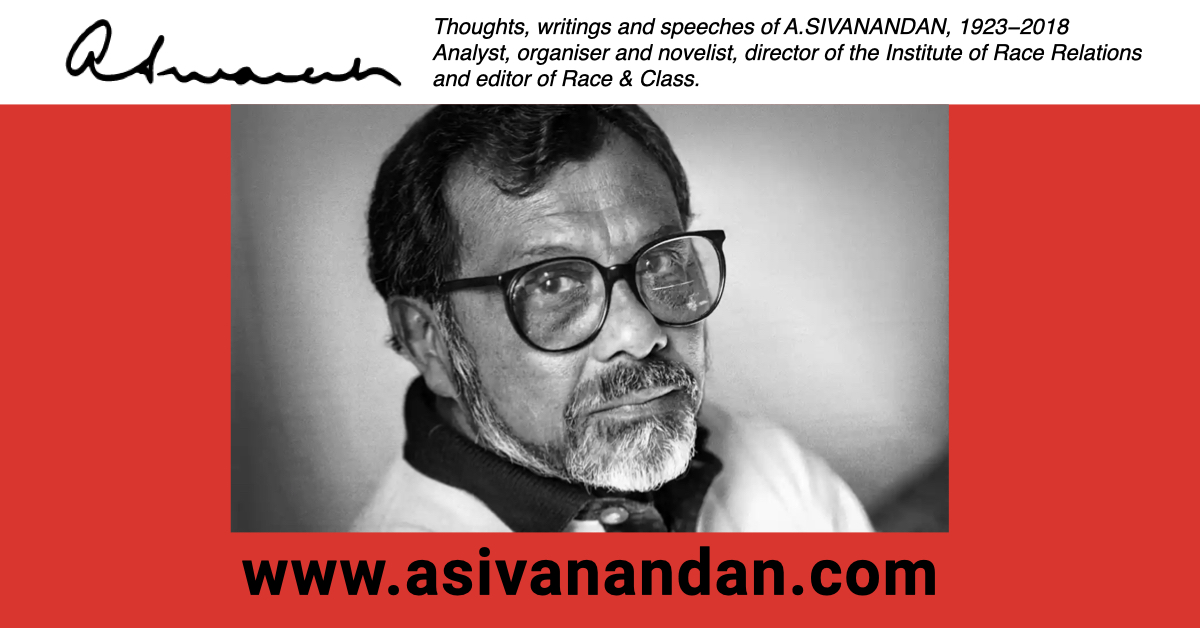2022 marks the 50th anniversary of the radical transformation of the IRR. This year, we will be celebrating our history, past, present and future with a series of events, projects and activities as part of IRR50.
The Extraordinary General Meeting of staff and members on 18 April 1972 changed the direction and relevance of the IRR, from a policy-oriented, establishment, academic institution to an anti-racist ‘thinktank’ under the leadership of A. Sivanandan. This momentous change shifted the Institute’s focus, responding to the needs of Black people and all those affected by racism, and making direct analyses of institutionalised racism in Britain and the rest of Europe.
This year, we will be reflecting on the IRR’s legacy and how that ‘revolutionary act’ of April 1972 underpins the organisation’s identity and sets the coordinates for its work today and into the future.
As part of this special anniverary, we’re asking our regular readers, supporters and friends to sign up to a regular monthly donation. Help us continue to publish important research, maintain our archive and keep a record on racism and resistance by becoming a friend of the IRR today.
New circuits of anti-racism
The IRR was proud to present ‘New Circuits of Anti-racism’ – an IRR50 conference on racism, imperialism and new lines of resistance. On Saturday 15 October 2022, a range of thinkers, scholar-activists and campaigners from the UK, the United States and beyond gather at King’s College London for a day of reflection, action and imagination.
Struggling on, staying strong: Reflections on IRR50
To mark 50 years since the radical transformation of the Institute of Race Relations, staff and council of management members reflect on the IRR’s longevity and place in British anti-racism. Filmed and produced by Rainbow Collective.
Here and Now: Rare BBC film on the IRR’s transformation from 1982
Produced by Pebble Mill studios, Paula Ahluwalia spoke to A. Sivanandan, Stuart Hall, Jenny Bourne, Hazel Waters, Cedric Robinson, Colin Prescod and Kenneth Leech about the unique history of the Institute of Race Relations and it’s radical transformation, precipitated by the Extraordinary General Meeting of 18 April 1972.
Race & Class special edition: IRR50 and the revolutionary act
Order our special issue of Race & Class, that includes an editorial by Race & Class Editor Jenny Bourne, recalling the circumstances that led to that Extraordinary General Meeting in April 1972.
The Anti-Racist Record: Launching the Register of Racism & Resistance
As part of IRR50, we will be launching a brand new resource, the Register of Racism and Resistance (RRR), a unique searchable database that documents key developments in racism and community action since 2014. We are holding an online participatory event on 31 March 2022, 6-7.30pm, open to all, to launch this important resource as well as provide a space to reflect on how keeping a record of racism forms a crucial part of anti-racist struggle.
The event will trace the IRR’s historical legacy of keeping a record of racism – from the anti-racist magazine CARF (Campaign against Racism and Fascism) published from 1991-2003, to the fortnightly publication of our calendar of racism and resistance on IRR News.
The Sivanandan website
The IRR is delighted to release an online archive of A. Sivanandan’s writings, speeches, essays, aphorisms and reviews, spanning six decades. The archive section of the website features a catalogued bibliography of Siva’s works, from the 1960s through to the 2010s. It contains seminal essays such as RAT and the degradation of black struggle, plus rare speeches and tributes to black power leaders and writing contemporaries. The site also contains archival video clips of interviews, TV reports and speeches as well as as a number of Sivanandan’s most famous aphorisms and phrases. You can also learn more about Siva’s incredible life – from his beginnings in colonial Sri Lanka (then Ceylon) to his migration to Britain and his leadership of the IRR and editorship of the journal Race & Class.



